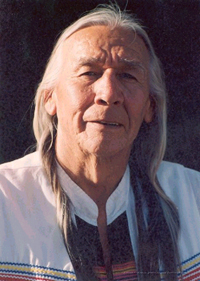A Quote by John Irving
The history of a city was like the history of a family—there is closeness and even affection, but death eventually separates everyone from each other. It is only the vividness of memory that keeps the dead alive forever; a writer’s job is to imagine everything so personally that the fiction is as vivid as our personal memories.
Related Quotes
Science fiction is the most important literature in the history of the world, because it's the history of ideas, the history of our civilization birthing itself. ...Science fiction is central to everything we've ever done, and people who make fun of science fiction writers don't know what they're talking about.
Photography is linked with death in many different ways. The most immediate and explicit is the social practice of keeping photographs in memory of loved beings who are no longer alive. But there is another real death which each of us undergoes every day, as each day we draw nearer to our own death. Even when the person photographed is still living, that moment when she or he was has forever vanished.
The Greeks really believed in history. They believed that the past had consequences and that you might be punished for the sins of your father. America, and particularly New York, runs on the idea that history doesn't matter. There is no history. There is only the never-ending present. You don't even have your family because you moved here to get away from them, so even that idea of personal history has been cut at the knees.
We don’t constrain our mental powers when we store new long-term memories. We strengthen them. With each expansion of our memory comes an enlargement of our intelligence. The Web provides a convenient and compelling supplement to personal memory - but when we start using the Web as a substitute for personal memory, by bypassing the inner processes of consolidation, we risk emptying our minds of their riches.
I have to throw in on a personal note that I didn't like history when I was in high school. I didn't study history when I was in college, none at all, and only started to do graduate study when my children were going to graduate school. What first intrigued me was this desire to understand my family and put it in the context of American history. That makes history so appealing and so central to what I am trying to do.
Because computers have memories, we imagine that they must be something like our human memories, but that is simply not true. Computer memories work in a manner alien to human memories. My memory lets me recognize the faces of my friends, whereas my own computer never even recognizes me. My computer's memory stores a million phone numbers with perfect accuracy, but I have to stop and think to recall my own.
Memory is like fiction; or else it's fiction that's like memory. This really came home to me once I started writing fiction, that memory seemd a kind of fiction, or vice versa. Either way, no matter how hard you try to put everything neatly into shape, the context wanders this way and that, until finally the context isn't even there anymore... Warm with life, hopeless unstable.
I think every human being, born from mother, and at least the next few years, you see, received immense affection from our mother. So the child's first experience in this lifetime at the beginning, I think that immense affection from other is in our blood. So therefore, the whole rest of life, other people show you smile, genuine sort of closeness feeling. You feel happy. Even animals also like that.
There is an ancient Indian saying that something lives only as long as the last person who remembers it. My people have come to trust memory over history. Memory, like fire, is radiant and immutable while history serves only those who seek to control it, those who douse the flame of memory in order to put out the dangerous fire of truth. Beware these men for they are dangerous themselves and unwise. Their false history is written in the blood of those who might remember and of those who seek the truth.
Personal history must be constantly renewed by telling parents, relatives, and friends everything one does. On the other hand, for the warrior who has no personal history, no explanations are needed; nobody is angry or disillusioned with his acts. And above all, no one pins him down with their thoughts and their expectations.





































